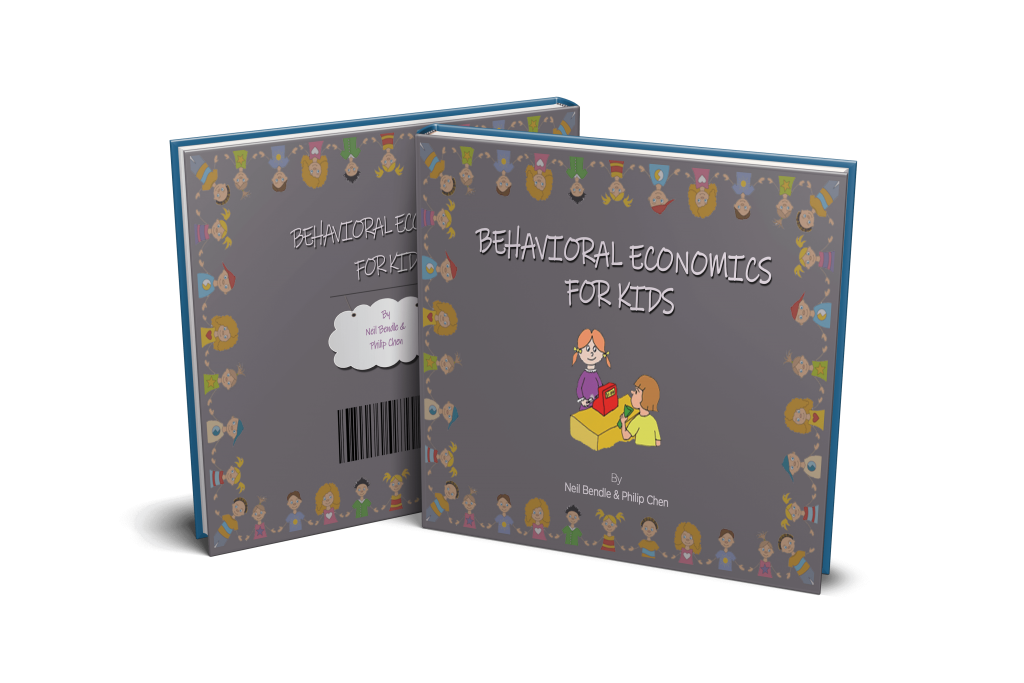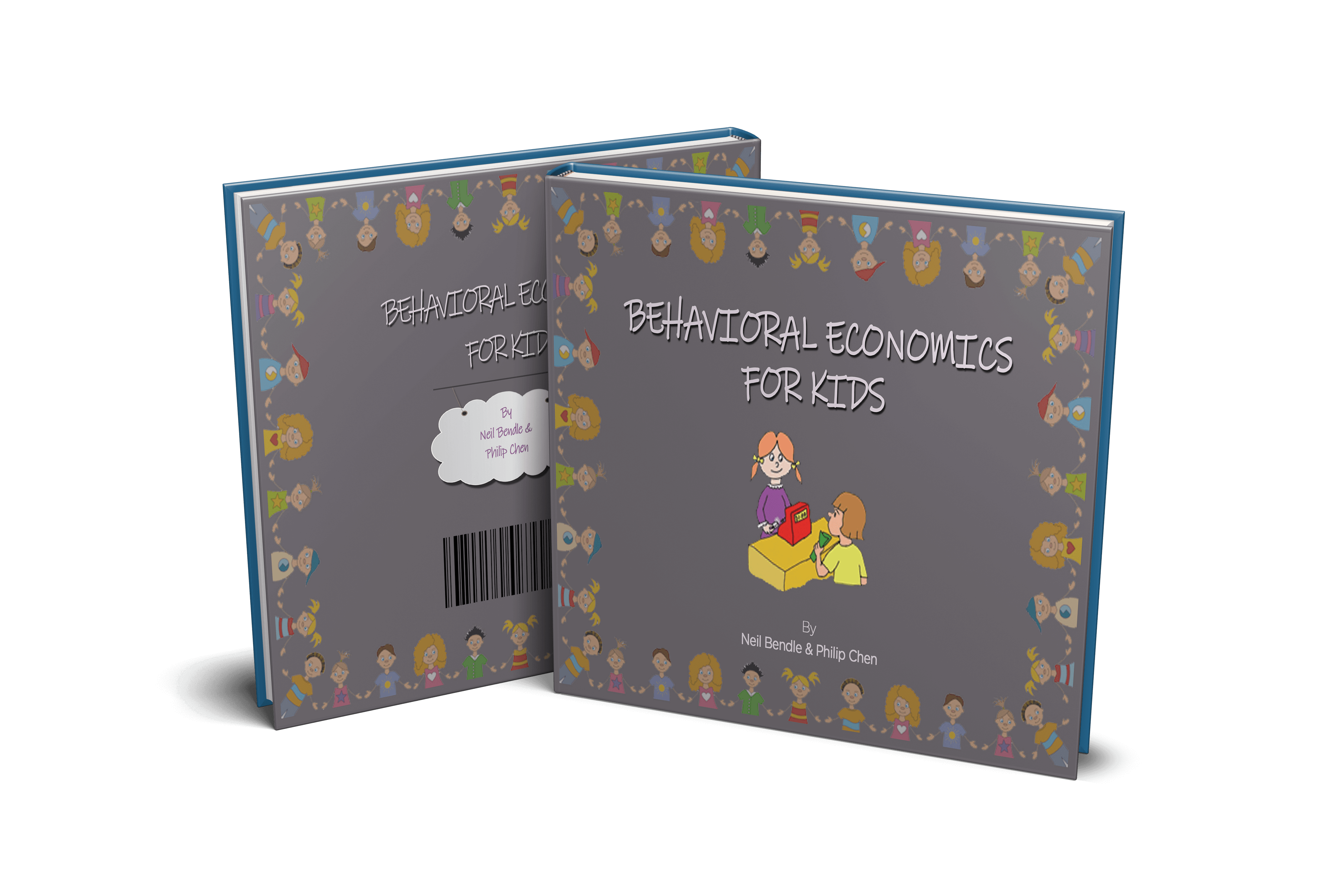The new (third) edition of Behavioral Economics for Kids.

What Is the Aim of The Book?
Firstly, this isn’t the sort of book you just give to your five year old and expect them to digest it. In other words, I aimed the book at parents, students, and scholars. As a result of being a parent I feel I already give too much time to thinking how kids learn.
The aim is for the book to be read by those who want a new way of thinking about human behavior. The book shows this through the lens of children’s actions. I confess that this has caused a little confusion. For instance, this really isn’t a book for your young child’s birthday. Unless, of course, that your young child is comfortable with words like hyperbolic discounting. Or if your kid worries about base rate neglect. In other words, you need to know a bit about human behavior to make sense of the book.
That said, I hope that this cartoon book explains basic ideas in behavioral economics in simple terms.
In doing so it uses examples from childhood to illustrate the psychology of decision making. Through these examples the book explains key ways in which people don’t behave like standard economic models often assume.
The Chapters
- 1) The Endowment Effect
- 2) Sunk Cost Bias
- 3) Hyperbolic Discounting (impatience)
- 4) Reference Dependence
- 5) Framing
- 6) Trust
- 7) Fairness
- 8) Loss Aversion
- 9) Mental Accounting
- 10) Dishonesty
- 11) Base Rate Neglect
- 12) Competitor Orientation
- 13) Overweighting of Small Probabilities
- 14) Overconfidence, and
- 15) Identity.
After illustrating and explaining each concept we refer to a key academic article for those who want to know more. Above all this book is for students, teachers, and academics in psychology, behavioral economics, and business (especially marketing). Also excellent for inspiring children and adults to think through why we behave the way we do.
Behavioral Econ For Kids
If you want you can download it here as a pdf:
Feel free to use in class. Hopefully you might want a copy just to amuse yourself. See our coverage on morningstar.ca.
I would love ideas on topics we should add. Similarly, do please do contact me if you think some bits just don’t make sense. Drop me a line with any suggestions, neilbendle@hotmail.com.
Illustrator
The illustrations of the book are provided by Phil Chen. If you want to see Phil’s other work, which includes editorial political cartoons, can be found at: Books by Philip Chen.
In conclusion, I hope you enjoy Behavioral Economics for kids.

